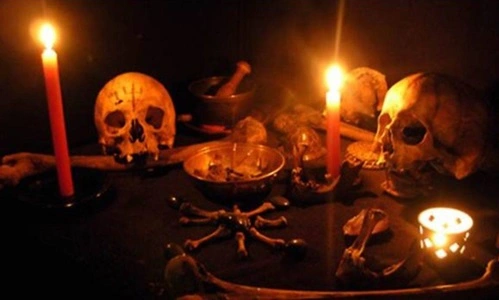If you live in India, you may have realized how many people actually believe in black magic in the country, right? Well, not everybody admits to believing in such things as in some countries in Africa, but still, this thing is an issue in the country. And just as you thought, there are some strict laws in place in India against black magic. Let’s have a look:

First Of All, What Does Black Magic Actually Mean?
Black magic, which is also called witchcraft, is when people use supernatural skills for bad or selfish reasons. People use these “dark arts” to hurt other people’s minds, bodies, or money. These are things like curses, magic, and ceremonies that are meant to hurt or kill. Black magic has been practiced in India for a very long time and is part of the country’s culture and religion. Sure, we live in a modern time, but there are many people who still believe in its power and look for practitioners to do everything from get better to get even.
Superstition and its Impact
Simply put, superstition is believing in things that aren’t real without any evidence from science. People believe that certain traditions, omens, and taboos can bring them good or bad luck. And yes, there are superstitions all over India, in all areas, faiths, and groups of people. People who hold these views may face discrimination, violence, or even death because of them. Oftentimes, it has been seen that people who believe in superstitions may not get the medical care or schooling they need, which can keep them poor and ignorant.
Legal Framework Against Black Magic
1. National Legal Provisions
See, to be clear from the very start, India doesn’t have a rule specifically against superstition and black magic, but the Indian Penal Code (IPC) does cover crimes that are related to it. Section 302 talks about murder, which can include cases of human sacrifice, for the sake of example. And yes, Section 295A punishes actions meant to hurt religious feelings, which can include black magic. Also, the Drugs and Magic Remedies (Objectionable Advertisements) Act of 1954 stops ads for magical cures that aren’t what they seem to be, you know?
2. State-Specific Laws
Now, on top of the national legal provisions, there are some state-specific laws regarding his black magic thing, and if you want to know more about it. Well, check out the following laws in places in the different states of the country:
Remember the all-time famous Maharashtra Prevention and Eradication of Human Sacrifice and Other Inhuman, Evil, and Aghori Practices and Black Magic Act, 2013, against black magic and human sacrifice? Yes, this law clearly states that these things are illegal.
Then we come to Bihar, where the Prevention of Witch (Daain) Practices Act, 1999, is implemented which is ultimately meant to stop women who are thought to be witches from being mistreated.
And in the context of Karnataka, the Karnataka Prevention and Eradication of Inhuman Evil Practices and Black Magic Act, 2017, makes it unlawful for anyone to do or perform a number of cruel religious practices.
On the other hand, in Orisha, people who are interested in witch-hunting or sorcery can very well be punished under the Odisha Prevention of Witch-Hunting Act, of 2013
Similarly, north of India, in Rajasthan, the Prevention of Witch-Hunting Act, 2015 is in place right now which clearly states that anyone shouldn’t get involved in black magic-related practices or activities.
Cultural and Societal Hurdles
You see, even in today’s modern times, cultural beliefs that are strongly held are one of the biggest problems with getting rid of black magic and superstition. Many groups hold on to these practices because they are important to their beliefs and don’t want to change them.
And even when laws are in place, enforcement is difficult. You know, police often don’t have the training or tools they need to handle cases of witchcraft and black magic well. Things are made worse by corruption and a lack of knowledge, which keeps many people from getting justice.
And you’d be surprised to know that other countries have done things to fight black magic and belief. Tanzania, for example, has laws against witchcraft and campaigns to keep people safe, especially albinos. The Fraudulent Mediums Act of 1951 replaced the UK’s Witchcraft Act of 1735. Though, this very law focused on scams rather than supernatural ideas. And it is true that India must take inspiration from other countries that already have strict laws against black magic. Sure, it’ll be tough to implement because of the culture in the country, but it’ll totally be worth it.

Our dedicated team gathers information from all the reliable sources to make the law accessible and understandable for everyone. We provide the latest legal news stories from across the country, delivered straight to you.
